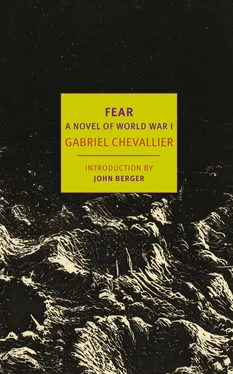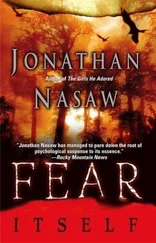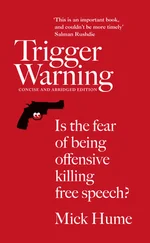What is war?
No one has the foggiest idea…
It’s more than forty years since the last one. The few surviving witnesses, identifiable by their medals, are old men who talk a lot of drivel, whose youth has deserted them and are well on their way to a place in Les Invalides.[4] It was not because we lacked valour that we lost the war of 1870 but because we were betrayed by Bazaine,[5] think the French. Ah, if it hadn’t been for Bazaine…
In recent years we have learned of other, more distant wars. The one between the English and the Boers, for example. We know about that one mainly through the caricatures of Caran d’Ache[6] and the engravings in illustrated magazines. The courageous president Kruger led the Boers in their resolute resistance; we admired him for it, and hoped he would triumph, so as to upset the English who burned Joan of Arc and made a martyr of Napoleon on Saint Helena. Then there was the Russo-Japanese war, Port Arthur and all that. Those Japanese must be formidable soldiers; they beat the famous Cossacks, our allies, who, it must be said, lacked railways. The colonial wars do not seem to us to be very alarming. They evoke expeditions to the heart of the desert, pillaging Arab encampments, the Spahis with their red burnous, Arabs firing Damascene muskets into the air and galloping off on their little horses kicking up the golden sand. As for the Balkan wars, the province of journalists, they didn’t bother us. Living in the centre of Europe as we do, and convinced of the superiority of our civilisation, we consider that these regions are inhabited by coarse, inferior people. To us their wars resemble brawls between hooligans on suburban wastelands.
War was far from our thoughts. To imagine it, we had to refer back to History, to what little we knew of it. This was reassuring. For History offered us a past packed with glorious wars, great victories and ringing declarations, with a cast of remarkable and celebrated figures: Charles Martel,[7] Charlemagne, Saint Louis[8] sitting under an oak tree on his return from Palestine, Joan of Arc who kicked the English out of France, the hypocrite Louis XI who put people in cages while kissing his devotional medals, the gallant Francois I (‘All is lost save honour’), Henri IV, good-natured and cynical (‘A kingdom is well worth a Mass’[9]), the majestic Louis XIV, prolific producer of bastards, indeed all our skirt-lifting, jingoist kings, our eloquent revolutionaries, and Bayard, Jean Bart, Condé, Turenne, Moreau, Hoche, Masséna… And towering over them all, the mirage of Napoleon, in which the brilliant Corsican looms through the cannon smoke in his simple military uniform surrounded by his marshals, his dukes, his princes, his scarlet kings, in all their plumes and finery.
It must be said that after bothering all of Europe with our turbulence over so many centuries we have calmed down with age. But if anyone should dare to challenge us, we are ready for them… And now the die is cast, we must go to war! We are not afraid, to war we will go. We are still French, are we not?
Men are stupid and ignorant. That is why they suffer. Instead of thinking, they believe all that they are told, all that they are taught. They choose their lords and masters without judging them, with a fatal taste for slavery.
Men are sheep. This fact makes armies and wars possible. They die the victims of their own stupid docility.
When you have seen war as I have just seen it, you ask yourself: ‘How can we put up with such a thing? What frontier traced on a map, what national honour could possibly justify it? How can what is nothing but banditry be dressed up as an ideal, and allowed to happen?’
They told the Germans: ‘Forward to a bright and joyous war! On to Paris! God is with us, for a greater Germany!’ And the good, peaceful Germans, who take everything seriously, set forth to conquer, transforming themselves into savage beasts.
They told the French: ‘The nation is under attack. We will fight for Justice and Retribution. On to Berlin!’ And the pacifist French, the French who take nothing at all seriously, interrupted their modest little rentier reveries to go and fight.
So it was with the Austrians, the Belgians, the English, the Russians, the Turks, and then the Italians. In a single week, twenty million men, busy with their lives and loves, with making money and planning a future, received the order to stop everything to go and kill other men. And those twenty million individuals obeyed the order because they had been convinced that this was their duty .
Twenty million, all in good faith, following God and their prince… twenty million idiots… like me!
Or rather, no, I did not believe this was my duty. Nineteen years old and I had not yet come to believe that there was anything great or noble in sticking a bayonet into a man’s stomach, in rejoicing in his death.
But I went all the same.
Because it would have been hard for me to do anything else? No, that is not the real reason and I should not make myself out to be better than I am. I went against all my convictions, but still of my own free will — not to fight but out of curiosity: to see.
Through my own behaviour I can explain that of a great many others, especially in France.
In just a few hours, war turned everything upside down, spread the semblance of disorder everywhere — something the French always enjoy. They set off without any hatred at all, drawn by an adventure from which everything could be expected. The weather was lovely. This war was breaking out right at the beginning of August. Ordinary workers were the most eager: instead of their fortnight’s annual holiday, they were going to get several months, visiting new places, and all at the expense of the Germans.
A great medley of clothes, customs and classes, a great clamour, a great cocktail of drinks, a new force given to individual initiatives, a need to smash things up, to leap over fences, to break laws — all this, at the start, made the war acceptable. It was confused with freedom, and discipline was then accepted in the belief that it was lacking.
Everywhere had the atmosphere of a funfair, a riot, a disaster and a triumph; a vast, intoxicating upheaval. The daily round had come to a halt. Men stopped being factory workers or civil servants, clerks or common labourers, in order to become explorers and conquerors. Or so at least they believed. They dreamed of the North as if it were America, or the pampas, or a virgin forest, of Germany as if it were a banquet; they dreamed of laying waste to the countryside, breaking open wine barrels, burning towns, the white stomachs of the blonde women of Germania, of pillage and plunder, of all that life normally denied them. Each individual believed in his destiny, no one thought of death, except the death of others.
In short, the war got off to a pretty good start, with the help of chaos.
In Berlin those who wanted all this make an appearance on the palace balconies, in their finest uniforms, in postures suitable for the immortalising of famous conquerors.
Those who are unleashing on us two million fanatics, armed with rapid-fire artillery, machine guns, repeater rifles, hand grenades, aeroplanes, chemicals and electricity, shine with pride. Those who gave the signal for the massacre are smiling at their coming glory.
This is the moment when the first — and last — machine gun should have done its work, emptied its belt of bullets on to that emperor and his advisors, men who believe themselves to be strong, superhuman, arbiters of our destinies, and who are nothing but miserable imbeciles. Their cretinous vanity is destroying the world.
Meanwhile in Paris those who did not know how to prevent all this, who are surprised and overwhelmed by it, run around consulting each other, advising each other, rushing out reassuring communiqués, and mobilising the police against the spectre of revolution. The police, zealous as ever, strike down anyone who is not displaying sufficient enthusiasm.
Читать дальше












